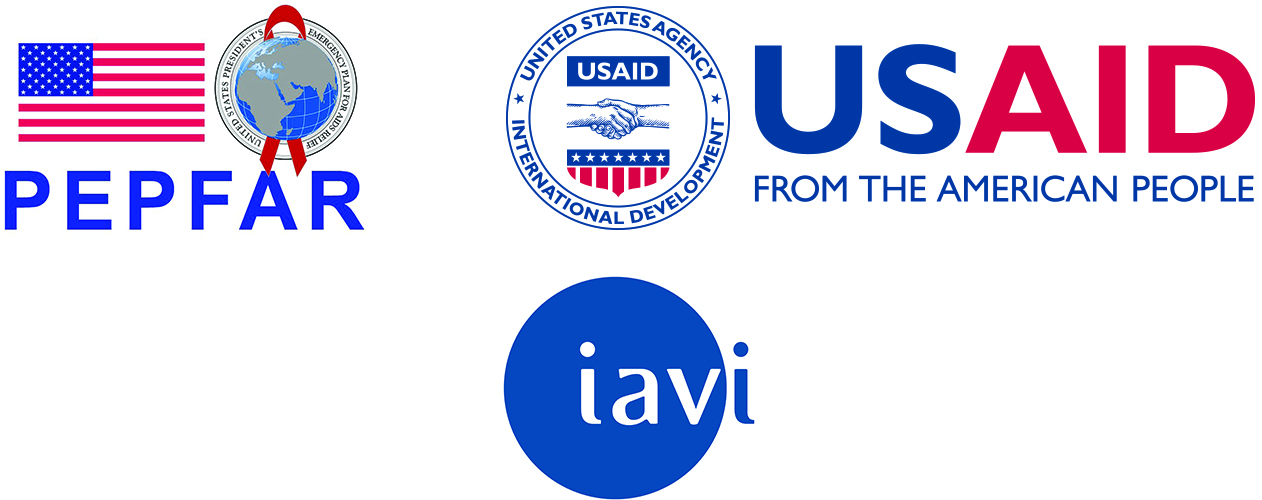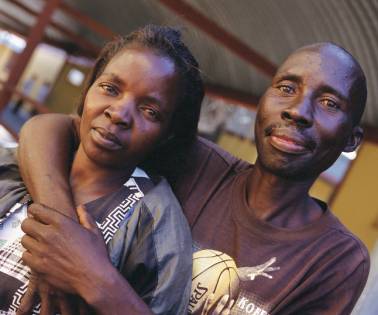January 14, 2020
IAVI Makes Available Unique Dataset and Samples from Pioneering HIV/AIDS Study in Africa to Researchers
USAID-funded project propels HIV research through data science.

 Photo credit:Charlotte Raymond Photography
Photo credit:Charlotte Raymond Photography
NEW YORK — 14 JANUARY 2020 — Today IAVI, a nonprofit scientific research organization dedicated to addressing urgent, unmet global health challenges, announces the launch of IAVI DataSpace, an open-access, online portal to a one-of-a-kind dataset from a study of early HIV infection in a unique sub-Saharan African cohort. Researchers from across the world are invited to interact with the data through powerful visualization tools that help them understand the interplay between HIV and the human immune system and the complex dynamics of HIV transmission. IAVI DataSpace, funded by the U.S. Agency for International Development (USAID), is backed by an extensive sample library also available to researchers.
The data and samples were collected in IAVI’s landmark USAID-funded Protocol C epidemiological study between 2006 and 2017. The study followed 613 participants newly infected with HIV in Eastern and Southern Africa, including heterosexual men and women with a regular HIV-positive sex partner; at-risk young women, including sex workers; and men who have sex with men. The data convey years of immunological events from the earliest stages of HIV infection. Aggregate data from the Protocol C cohort are freely available on the portal; researchers who wish to analyze anonymized participant-level data and samples may request access.
Professor Jill Gilmour, Ph.D., Executive Director, Human Immunology, and Principal Investigator, IAVI Human Immunology Laboratory (HIL) at Imperial College London, said, “We are gratified that USAID support is allowing us to make this truly unique dataset widely available to the HIV research community, and especially to researchers in Africa. These data represent diverse African populations, risk groups, and viral genetics of HIV acquired through various modes of transmission, giving researchers insights into the complexity of HIV transmission and infection. The fact that Protocol C researchers collected samples from a complete spectrum of viral control — from participants who had poor viral control to those called elite controllers — makes us hopeful that these data could drive discoveries eventually leading to new HIV prevention tools and even novel treatment approaches.”
Benny Kottiri, Ph.D., Chief, Research Division, Office of HIV/AIDS, Bureau for Global Health, USAID, said, “USAID lauds IAVI’s efforts in publicly sharing these data and specimens aimed at breakthrough scientific discoveries and new collaborative research partnerships. The Agency views these data and specimens as valuable ‘research capital’ that can be used by the global research community to catalyze biomedical research innovations and accelerate product development outcomes.”
A main goal of making the Protocol C data available through IAVI DataSpace is to encourage and enable African scientists to design studies that could potentially drive African-led collaborative solutions to the HIV/AIDS crisis across the continent and globally.
Etienne Karita, M.D., M.Sc., M.P.H., a lead investigator on IAVI Protocol C and director of the Center for Family Health Research (formerly Projet San Francisco) in Kigali, Rwanda, said, “The launch of IAVI DataSpace is a noble initiative as it provides an excellent opportunity to the scientific community in Africa and elsewhere to have access to unique data and samples from recently HIV-infected people. IAVI Protocol C was implemented by African scientists in the context of a strong spirit of scientific collaboration to advance the understanding of HIV transmission and pathogenesis, and to contribute to the discovery of an efficacious HIV vaccine. In IAVI DataSpace we see this spirit continue.”
IAVI DataSpace will grow as ongoing research into Protocol C samples continues. For example, IAVI will expand the available data by adding genetic profiles of transmitted founder viruses and whole genome sequencing of all 613 participants, which is being performed at Wellcome Sanger Institute.
The dashboards on IAVI DataSpace are built using Tableau Software and posted on Tableau Public. Tableau is a recognized global leader in data analytics and interactive data visualization. Through licenses granted by the Tableau Foundation, Tableau’s philanthropic arm, IAVI provides researchers access to the dashboards for data exploration and analysis.
Gladys Macharia, M.Sc., a Ph.D. candidate originally from Kenya working at the HIL, described how she uses IAVI DataSpace in her work: “My current research explores the role of the original transmitted founder virus in shaping disease progression, as well as the viral determinants of how disease progresses. Data from the IAVI Protocol C cohort gives me a unique opportunity to characterize transmitted founder viruses where disease outcome is known. Using Tableau dashboards, I can specifically visualize transmitted founder virus sequence data of individual participants. This allows me to further explore immune responses at different time points of disease progression. From there, I hope to contribute to the understanding of the nature of the immune defense that the transmitted founder viruses were up against in their host.”
Gilmour added, “We’re grateful that our partners at clinical research centers in Eastern and Southern Africa, the Protocol C participants, and USAID were committed to making these data available to the wider HIV research community so that we can accelerate tools capable of ending the HIV epidemic. Using next-generation technologies, we will continue to add high resolution data to the database, enabling us to study the virus in an unprecedented way. Soon, IAVI will be granting awards to support the work of researchers who want to use data and samples from IAVI DataSpace in their projects. By adding to the data and inviting the field to use the database, we hope to drive our goal of developing an HIV vaccine and other prevention tools for those most at risk and catalyze the community to access and share information.”
Researchers who wish to request a Tableau login or access to Protocol C participant-level data or samples should apply through the IAVI DataSpace portal.
About USAID
USAID administers the U.S. foreign assistance program providing economic and humanitarian assistance in more than 120 countries worldwide. This project is made possible by the support of the American people through USAID and the U.S. President’s Emergency Plan for AIDS Relief (PEPFAR). The contents of this announcement are the responsibility of IAVI and do not necessarily reflect the views of USAID, PEPFAR, or the United States government.